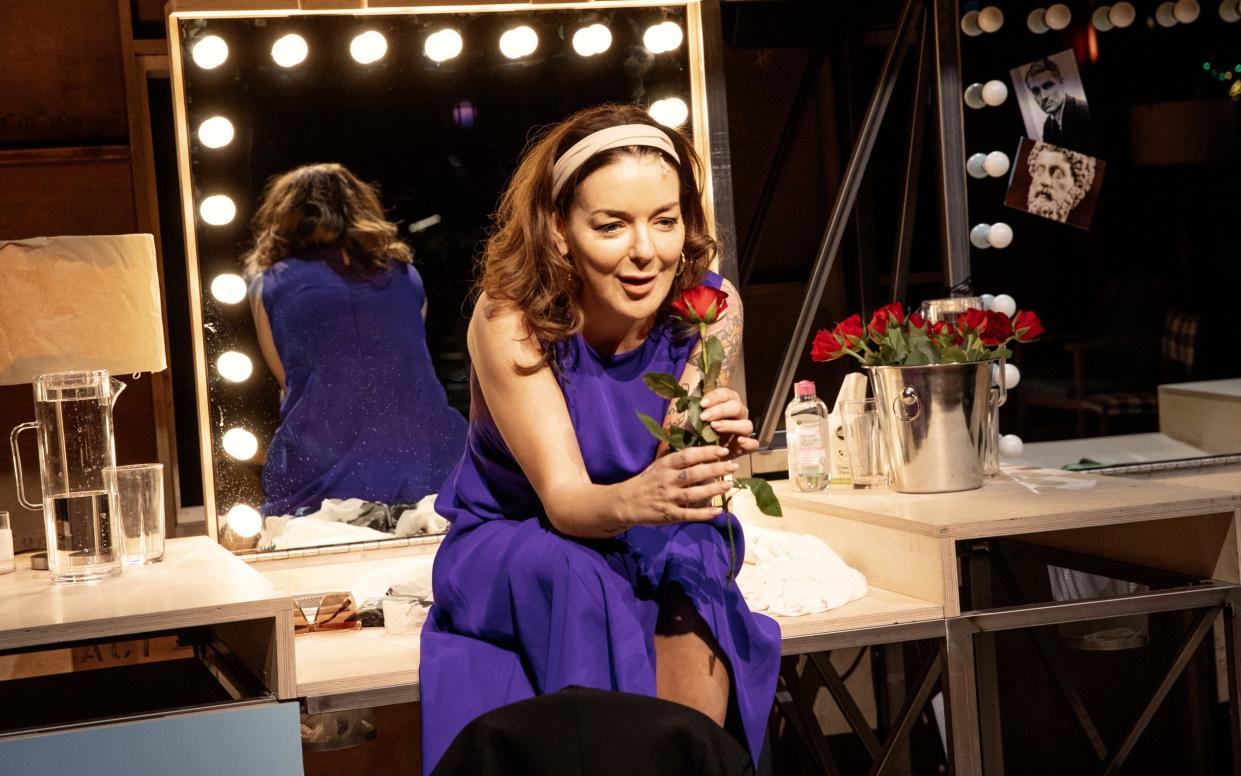Opening Night: Sheridan Smith enthralls, but this play is a pretentious, convoluted mess

Sheridan Smith embodies star quality – a star quality that can be broken down into rough constituent elements of adorability, fragility and fighting-spirit. You can’t keep your eyes off her whatever she’s up to, whether lighting up with a smile or letting a hint of ruefulness cross her features.
That capacity to captivate, almost no matter the dramatic circumstances, is fully on view – you might say miraculously survives intact – in her latest venture. She’s cast as Myrtle, a leading lady falling apart during the previews for a Broadway play, in a new musical adaptation of John Cassavetes’s 1977 film Opening Night devised by Canadian-American singer-songwriter Rufus Wainwright and Belgian director Ivo van Hove.
You don’t need to have followed Smith’s career especially closely to see why she might have been drawn to this project. She had a much publicised mental health episode during the 2016 West End run of Funny Girl, which saw her withdraw from performances for over two months. Since her return to the theatrical fold, fans have rallied, as has she; her ace turn in Shirley Valentine, which comically treats the woman-in-crisis trope, was a signal that she would bravely face her demons, and take risks.
Psychological perturbation is given a stagily artificial supernatural form in the Cassavetes story. Myrtle is accosted by an ardent teenage female fan, Nancy, after a try-out performance mired in mutinous, diva-ish doubt about how to play her unfulfilled character, Virginia. Nancy is run over and killed moments later then returns as a phantom figure in Myrtle’s sozzled thespian freak-out, giving pep talks but stinging her with pangs of lost youth. In something out of a horror-film, the actress finally slays her spectral stalker and gropes after an affirmative identity for her middle years and hence the role too (the Broadway play is called The Second Woman), resisting the part’s confining allusions to menopause and ageing while recognising the need for acceptance of what has been.
Even without Smith’s backstory, it’s a twisty, meta spin on the old “the show must go on” theme – the art-meets-life complications accentuated by romantic confusions (just as Virginia is drawn to her ex, so Myrtle is reluctantly and conflictedly playing opposite hers, Maurice). If you’re not acquainted with the Cassavetes original, you may well struggle to keep up or get duly bothered (the Broadway show seems entirely disposable). And Van Hove doesn’t help with his rough-and-ready mise en scène, which sets the action in a rudimentary back-stage environment, lined with dressing-room mirrors at the rear, into which Myrtle sadly stares.
Although he pioneered the use of live video on stage, here he barely bothers to justify, dramatically, his use of a roving film crew beyond the basic steer that the company are being trailed for a fly-on-the-wall documentary. Captured imagery dominates the stage, including a brief foray outside the Gielgud, showing Smith staggering and slumping near passers-by.
How one envies those outside, though, as the evening lurches from one so-so number to the next, Wainwright’s score stylistically all over the place and many lyrics lacking rhyme or reason. A few songs, above all the “strike up the band” opener, Magic, and rousing finale Ready for Battle, properly showcase his gifts and display the star at her lung-busting best. As for the supporting cast, whether they’re playing exasperated director, interfering producer, slighted author, vexed leading man or twitchy teen revenant, they give it their all.
But it’s not enough to win hearts and minds. Shezza will live to fight another day. Whether the show deserves to long outlive its own opening night is another matter.
Booking until July 27; openingnightmusical.com